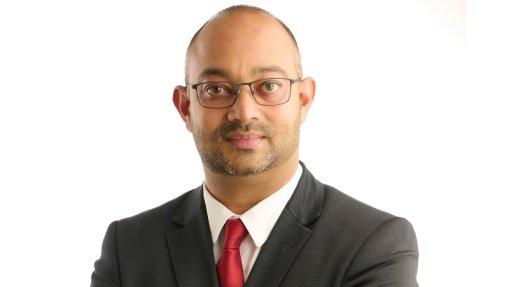Seifsa, trade unions welcome ‘watershed’ court ruling on collective wages
The Steel and Engineering Industries Federation of Southern Africa (Seifsa), alongside trade unions, has welcomed a ruling by the Labour Court last week to dismiss an application brought by the National Employers’ Association of South Africa (Neasa) and the South African Engineers’ and Founders’ Association (Saefa).
Neasa and Saefa had sought to halt the extension of the Metal and Engineering Industries Bargaining Council’s Main Agreement to nonparties, and instead wanted each employer to use its own discretion about how much it can afford to pay employees.
Seifsa CEO Lucio Trentini noted in a media briefing on September 5 that centralised, collective bargaining was the way forward and that the Main Agreement was about extending the minimum conditions of employment to all employees operating in the metals and engineering (M&E) industry.
He added that the agreement ushered in an atmosphere of industrial peace and stability in the industry.
“For the first time in 30 years, employers are allowed to grant increases on a rand and cents amount calculated on the minimum gazetted rates for each grade of employee,” Trentini explained, confirming that these minimum rates would soon be published by the Department of Employment and Labour.
Those employers that have operated outside of the collective bargaining arena would have an opportunity to apply for a phase-in exemption, which involves them paying 60% of the 2020 rate, which mounts to R29.73 an hour, or about R5 000 a month, to all general labourers by June 30, 2024.
“This is an unprecedented arrangement to create a level playing field in the sector, which is in its best interest,” Trentini said.
To illustrate why he believes Neasa and Saefa’s application should have never been brought in the first place, Trentini said the organisations were minorities among 19 employer organisations, and represent only 25% of employees affiliated with employer organisations on the bargaining council.
Trentini lamented that resorting to litigation and court action was not only futile, time-consuming and costly, but also did little to create an enabling environment with labour, to deal with real conversations about what stakeholders could be doing to tackle issues such as unemployment and poverty.
Seifsa president Elias Monage echoed Trentini’s sentiments, saying the industry had been struggling for 11 years to extend a conditions of employment-related agreement to the entire industry.
“The extension to the Main Agreement ensures everyone in the industry complies with minimum requirements, barring those that apply for an exemption.
“The focus now should be on rebuilding the industry, particularly in the absence of infrastructure budgets and localisation,” Monage said.
National Union of Metalworkers of South Africa general secretary Irvin Jim said employers who cared for stability should get on board with minimum benefits and conditions.
“Workers in the wider industry also deserve increases, and have not been receiving them for years on end, despite being ravaged by inflation increases,” he added.
He said he hoped that Saefa and Neasa would redirect their energies to “positive efforts” in the industry and “not remain a stumbling block” for progress in the industry.
UASA operational manager Rick Grobler, Metal and Electrical Workers' Union of South Africa deputy general secretary Peter Madigoe and South African Equity Workers Association national coordinator Trevor Lejoane all agreed that competitiveness could be balanced with socioeconomic needs and that central bargaining ensured that no employee was extorted or abused.
Article Enquiry
Email Article
Save Article
Feedback
To advertise email advertising@creamermedia.co.za or click here
Press Office
Announcements
What's On
Subscribe to improve your user experience...
Option 1 (equivalent of R125 a month):
Receive a weekly copy of Creamer Media's Engineering News & Mining Weekly magazine
(print copy for those in South Africa and e-magazine for those outside of South Africa)
Receive daily email newsletters
Access to full search results
Access archive of magazine back copies
Access to Projects in Progress
Access to ONE Research Report of your choice in PDF format
Option 2 (equivalent of R375 a month):
All benefits from Option 1
PLUS
Access to Creamer Media's Research Channel Africa for ALL Research Reports, in PDF format, on various industrial and mining sectors
including Electricity; Water; Energy Transition; Hydrogen; Roads, Rail and Ports; Coal; Gold; Platinum; Battery Metals; etc.
Already a subscriber?
Forgotten your password?
Receive weekly copy of Creamer Media's Engineering News & Mining Weekly magazine (print copy for those in South Africa and e-magazine for those outside of South Africa)
➕
Recieve daily email newsletters
➕
Access to full search results
➕
Access archive of magazine back copies
➕
Access to Projects in Progress
➕
Access to ONE Research Report of your choice in PDF format
RESEARCH CHANNEL AFRICA
R4500 (equivalent of R375 a month)
SUBSCRIBEAll benefits from Option 1
➕
Access to Creamer Media's Research Channel Africa for ALL Research Reports on various industrial and mining sectors, in PDF format, including on:
Electricity
➕
Water
➕
Energy Transition
➕
Hydrogen
➕
Roads, Rail and Ports
➕
Coal
➕
Gold
➕
Platinum
➕
Battery Metals
➕
etc.
Receive all benefits from Option 1 or Option 2 delivered to numerous people at your company
➕
Multiple User names and Passwords for simultaneous log-ins
➕
Intranet integration access to all in your organisation

















